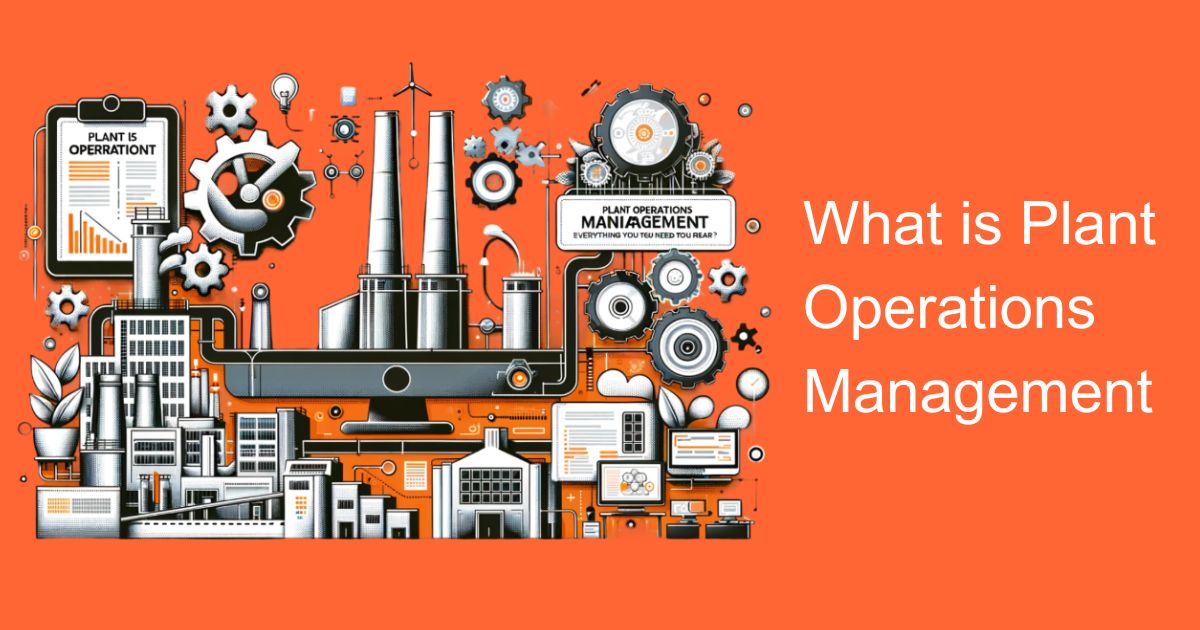Introduction
Plant operations management is a crucial aspect of any manufacturing or production facility. It plays a pivotal role in ensuring the efficient functioning of a plant, optimizing resources, and achieving production targets. In the Indian context, where manufacturing industries are a significant contributor to the economy, understanding plant operations management is of paramount importance. In this blog, we will delve into what is plant operations management, exploring its key components, challenges, and the role it plays in the Indian industrial landscape.
Plant Operations Management: A Comprehensive Overview
Plant operations management encompasses a broad range of activities aimed at overseeing the daily operations of a manufacturing or production facility. It involves planning, organizing, coordinating, and controlling various processes to ensure the smooth flow of production. Let’s break down the key elements of plant operations management:
Production Planning:
Effective plant operations management begins with meticulous production planning. This involves setting production goals, scheduling production runs, and allocating resources such as manpower, raw materials, and equipment.
Quality Control:
Maintaining consistent product quality is essential for customer satisfaction and compliance with industry standards. Plant operations managers are responsible for implementing quality control measures and ensuring that products meet specified criteria.
Inventory Management:
Managing inventory levels is crucial to prevent overstocking or shortages of raw materials and finished goods. This aspect of plant operations management involves forecasting demand, optimizing storage, and minimizing carrying costs.
Maintenance and Equipment Reliability:
Ensuring that machinery and equipment are in optimal working condition is vital to minimize downtime. Regular maintenance schedules and predictive maintenance techniques are employed to achieve this.
Resource Optimization:
Managing resources efficiently is a fundamental aspect of plant operations. This includes labor management, energy consumption optimization, and waste reduction strategies.
Safety and Compliance:
Safety regulations and environmental compliance are of utmost importance. Plant operations managers are responsible for implementing safety protocols and ensuring adherence to legal requirements.
Challenges in Plant Operations Management
Plant operations management in India presents its own unique set of challenges:
Resource Constraints:
India often faces challenges related to limited resources such as skilled labor, energy, and infrastructure. Effective utilization of available resources becomes critical.
Regulatory Environment:
Navigating the complex regulatory landscape in India, which varies across states, can be challenging. Compliance with environmental, labor, and safety regulations is a continuous task.
Infrastructure and Technology:
Upgrading and maintaining the infrastructure and technology required for efficient operations can be a challenge, particularly for smaller enterprises.
Supply Chain Disruptions:
India’s supply chain can be vulnerable to disruptions due to factors like transportation bottlenecks, weather events, or geopolitical issues.
The Role of Plant Operations Management in Indian Industry
In India, the manufacturing sector has been a significant driver of economic growth. Plant operations management plays a pivotal role in ensuring the competitiveness and sustainability of Indian industries. Here’s how:
Job Creation:
Efficient plant operations create job opportunities, contributing to employment generation in both urban and rural areas.
Economic Growth:
Manufacturing industries, when well-managed, stimulate economic growth by generating income, increasing exports, and attracting investments.
Global Competitiveness:
Effective plant operations management enhances the competitiveness of Indian products in the global market, leading to increased exports and foreign exchange earnings.
Sustainable Practices:
Embracing sustainable and environmentally friendly practices in plant operations management aligns with global trends and helps India meet its climate goals.
Conclusion
Plant operations management is the backbone of any manufacturing or production facility. In the Indian context, it assumes even greater significance due to the country’s burgeoning manufacturing sector. Understanding the intricacies of plant operations management, addressing challenges, and adopting best practices are crucial for the growth and sustainability of Indian industries. As India continues its journey towards becoming a manufacturing powerhouse, plant operations management will remain a linchpin in achieving this aspiration.








